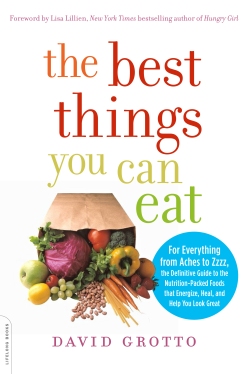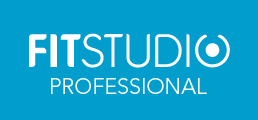

As featured today on WebMD Real Life Nutrition
By David Grotto, RD
Wow! That Giants – Patriots game last night sure was enough to make your heart skip a beat, eh?! Patriots fans may have felt a twinge in their chest at the end of the 4th quarter with that disappointing loss. And believe it or not, getting caught up in the excitement of an action-packed Super Bowl game might be enough to land you in the emergency room!
Doctors in the ER see their fair share of chest discomfort come through their doors. According to the Centers for Disease Control, every year about 785,000 Americans have a first heart attack. Many don’t even know they are having one, and depending on where in the heart the attack occurs, some won’t live to experience a second one. Heart disease is the number one killer of both men and women, accounting for nearly 600,000 deaths in the U.S. in 2009, according to the CDC, with an estimated declining figure for 2010 of 400,000 deaths, according to the World Health Organization. Slightly more than half of those deaths occur in men. And unfortunately, women are closing that gap.
Many women wouldn’t mind seeing the doc I interviewed for this post in the ER. You may know him from his appearance on The Bachelor or as “Dr. Travis” from the award-winning talk show, The Doctors. He doesn’t just play a doctor on TV – he actually is a highly trained emergency room doctor by profession. Dr. Travis Stork, MD graduated Magna Cum Laude from Duke University and earned his MD with honors from the University of Virginia. He works as an emergency room doctor and brings his real life experiences to the show he co-hosts and to his bestselling books: The Lean Belly Prescription and The Doctor Is In: A 7-Step Prescription for Optimal Wellness. But Dr. Stork would prefer never to see his fans in the ER. “You can’t reverse the effects of dead heart muscle once you’ve had a heart attack,” he says. “So don’t wait until you have one to start following a healthy lifestyle. You don’t want to come to the ER and hear me say ‘it’s too late.’” So with an eye on prevention, I asked Dr. Travis Stork to share his thoughts on our current battle against heart disease and his best advice on how to avoid ever seeing him in the ER.
Are we making any progress in the war against heart disease?
Dr. Stork. The numbers are still alarming. It’s still the #1 killer of both men and women. Death rates are declining, which is good, so yes, we are making headway. But in some respects, we are doing worse. We’ve made advances in diagnosis. [Many] women most likely died of heart disease years ago but we might have thought it was from something else because we didn’t think of heart disease as a “woman’s disease”. In the last decade or so, there has been a new focus on women and heart disease and more progress is being made. But time is so limited with your doctor, so conversation is also limited and heart disease messages don’t always get out there. Media is doing a better job and I think our show is getting the word out. However, I’m concerned that if we don’t reverse our current obesity trend, it won’t matter how great our technology is — we won’t make the headway needed to continue to curb heart disease.
Let’s start with the doctor-patient relationship. What can be done to foster better communications there?
Dr. Stork. Feel empowered. Talk with your doctor about steps to improve your health. Ask him/her, “What are the steps I can take?” So much education has to take place outside of the doc’s office – there’s simply not enough time during a visit to cover everything. Knowledge is power. When you visit your doctor to discuss treatment strategies, bring information with you so he/she can tailor a program more to your needs. The doc will know where you’re coming from and can better gage your motivation to make lifestyle changes. What lab tests/technologies are the best indicators that we are at risk for heart disease? Dr. Stork. Cholesterol is a good baseline test. Just like what leads to glucose and blood pressure problems, heart disease starts early in life. Your cholesterol may be perfect at age 20 — at least you know where you are at, if you have it tested. If it is elevated, you need to take extra precautions. Having your blood pressure, glucose, and cholesterol tests done as recommended are the best ways to get a snapshot of your health and they are fairly cheap to have performed. Know your numbers! For example, 64 slice CT scans are often advertised to detect heart disease, but most insurance companies don’t pay for them. Why? Is it worth the out-of-pocket investment? Are they accurate? We have more and more tech that can detect heart disease earlier. But whether the CT scan shows or doesn’t show disease, you should live every day to maximize heart health regardless of the results. Why would you want to wait until you have a problem to act?
What dietary and lifestyle advice do you recommend for your patients and fans?
Dr. Stork. Be wary of some new food that gets positive press — the #1 food that is supposed to be the be all and end all when it comes to fighting heart or any other disease. Consumers tend to latch on to the next big headline. Our show checks out how valid the information is about a food or product before jumping on the bandwagon. People don’t need to get distracted by the headlines – keep it simple. Soluble fiber from oats can lower cholesterol. Ordering salads without the creamy dressings and instead using olive oil and vinegar is a simple thing to do. Don’t focus on can’t do, focus on can dos. I ride my bike to work every day, rain or shine. It’s important to do physical activity that you enjoy doing. I feel when we talk about physical activity in a clinical setting, it sounds so boring. Getting active can be as simple as just getting on your feet more and not about going to the gym more. Getting on your feet doesn’t have to be one of the things you hate. In fact, it can reduce C-reactive protein (a marker for inflammation). Try getting on your feet when you’re on the phone. Most say, “I can do that!” Those are the kinds of messages that people relate to – 30 more minutes of activity versus watching more TV. Try to view health as a hobby rather than something you dread. You will get more enjoyment out of life and have a more positive attitude.
Can you lower your cholesterol without drugs? Are their dietary supplements that you recommend for lowering cholesterol?
Dr. Stork. Be careful with dietary supplements. I believe that eating whole foods has the best benefit for your health. Beans, oats, nuts, olive oil in place of butter, and fatty fish are all heart-healthy foods. More docs are recommending Omega 3 supplements for helping to control triglycerides. My #1 advice: treat a supplement like you would a medicine and talk to your doc. Tell your doctor what you are taking so that it can be entered into the electronic medical record. That way he or she will know what supplements you are taking in addition to your meds and will have a better idea of what you are doing. There is a role for supplements but be cautious about how they are used.
We hear inflammation is tied to heart disease. What can we do to reduce inflammation?
Dr. Stork. Believe it or not, flossing your teeth everyday helps control inflammation and inflammation is connected to heart disease. Data on flossing and longevity is quite interesting – decreasing your bacterial load in your mouth is good for your gums and may be good for your heart. Eating fruits and veggies can also help reduce inflammation.
Are statins safe? Any concerns with them?
Dr. Stork. Meds are patient specific. Statins can raise liver enzymes and possibly cause myopathies. But they can be very effective in lowering cholesterol. I take a two-pronged approach – just popping a pill is the wrong mindset. Meds are important. No matter what some people do to take care of themselves, they may be predisposed to heart disease, so meds might be appropriate for them. Yes, there are docs who are “meds first” and there are docs that are “lifestyle first”. We are getting better and better at offering lifestyle but some are still just giving meds – it’s easier. We probably do, as a profession, lean too much on meds because of the grim stats. It is difficult for many patients to make the necessary lifestyle changes.
How often should you see your doctor?
Dr. Stork. See your doc annually and have your cholesterol checked annually as well. Seeing your doctor should be tailored to your needs. The good news is if you take good care of yourself, then you don’t need to go to the doc as much. View health care as a check-up. The better choices you make, the longer time you can go between checkups. For example, if your blood pressure is elevated, you might have to see doc more frequently to make sure it is under control.
Final thoughts?
Dr. Stork. My personal belief is all of us should live our lives as if we have heart disease. Don’t wait until you have a diagnosis or a bad lab value to make the necessary lifestyle changes to lower your risk. Diagnostic tools are great, but why wait? Assume you will have heart disease unless you make the right choices. Control the risk factors: Smoking, high blood pressure, high cholesterol, high triglycerides, untreated diabetes, obesity, stress, and lack of regular exercise. What’s interesting is there are really three simple things you need to do – get active, eat better, and stop smoking. Concentrating on these three risk factors leads to all the others.
Thanks to Travis Stork, MD for sharing his wonderful advice. Next week I’ll offer some of my own advice on the best foods for fighting heart disease along with some yummy recipes! Stay tuned and have a great week!







